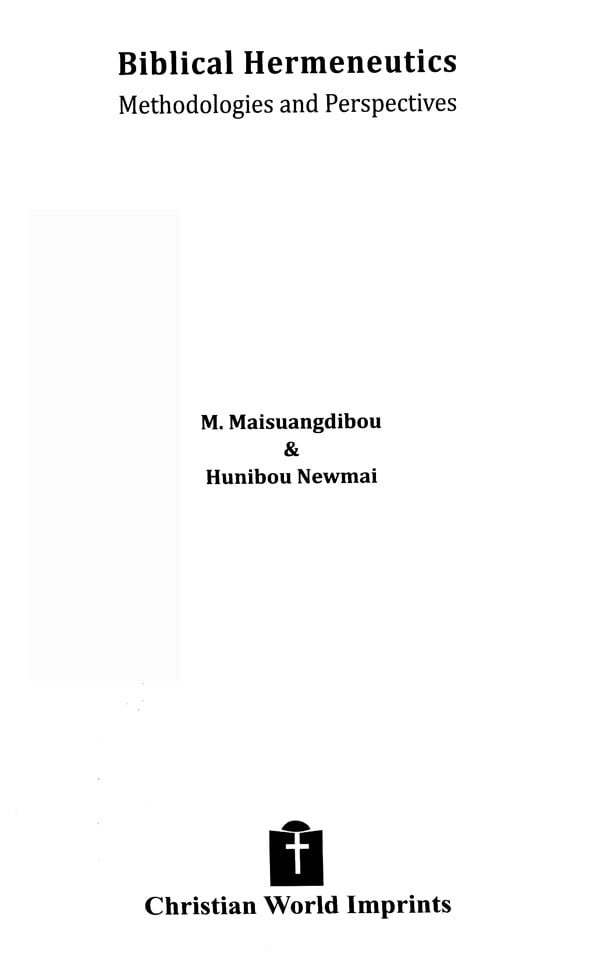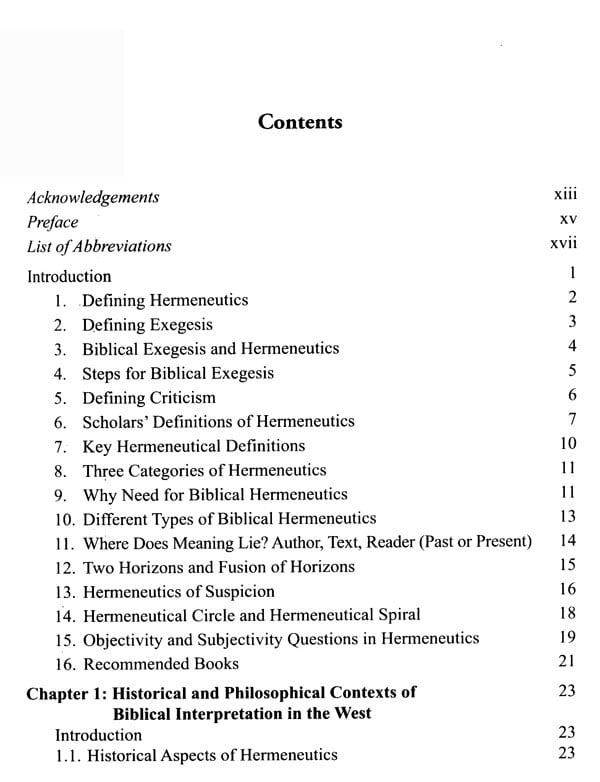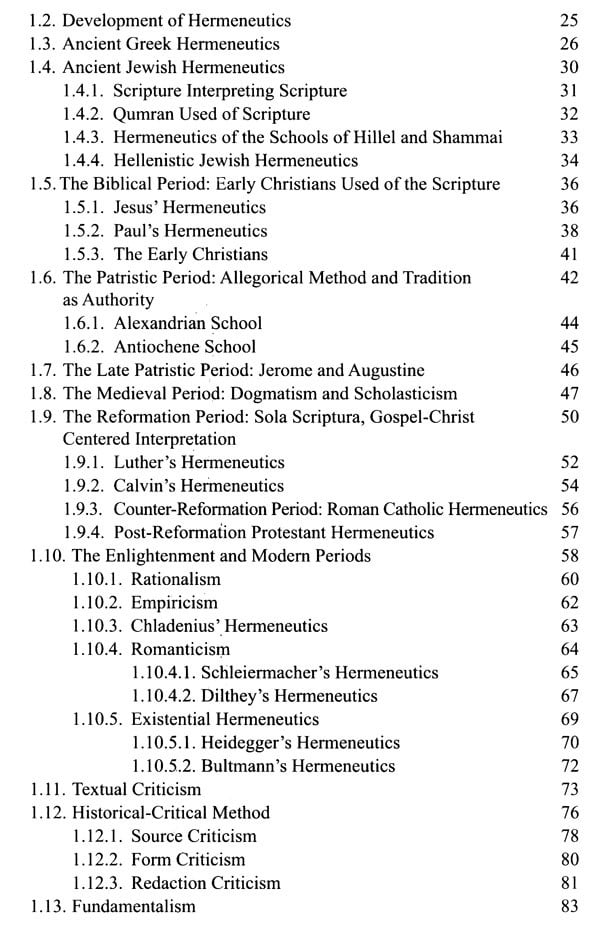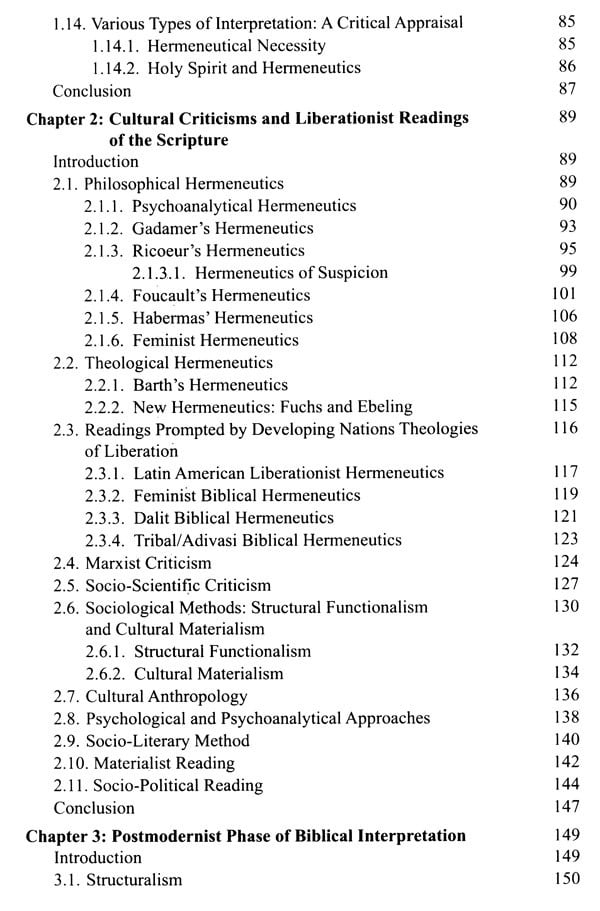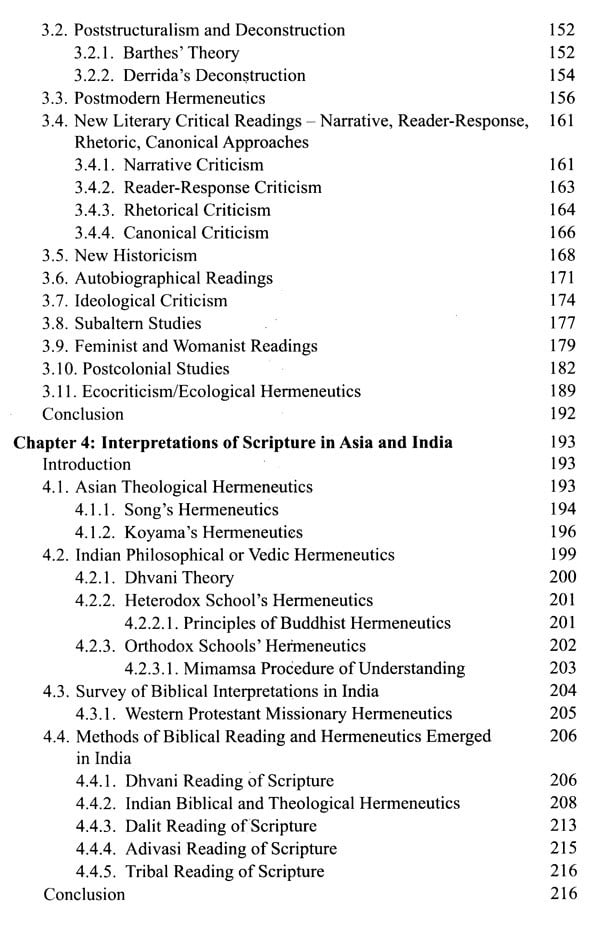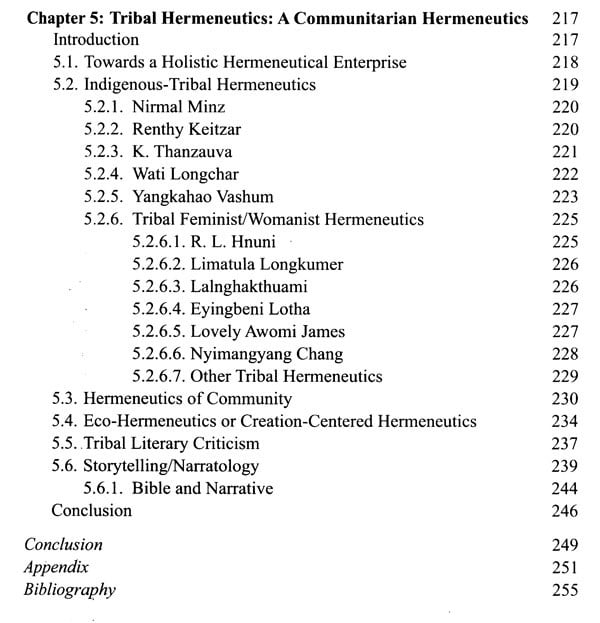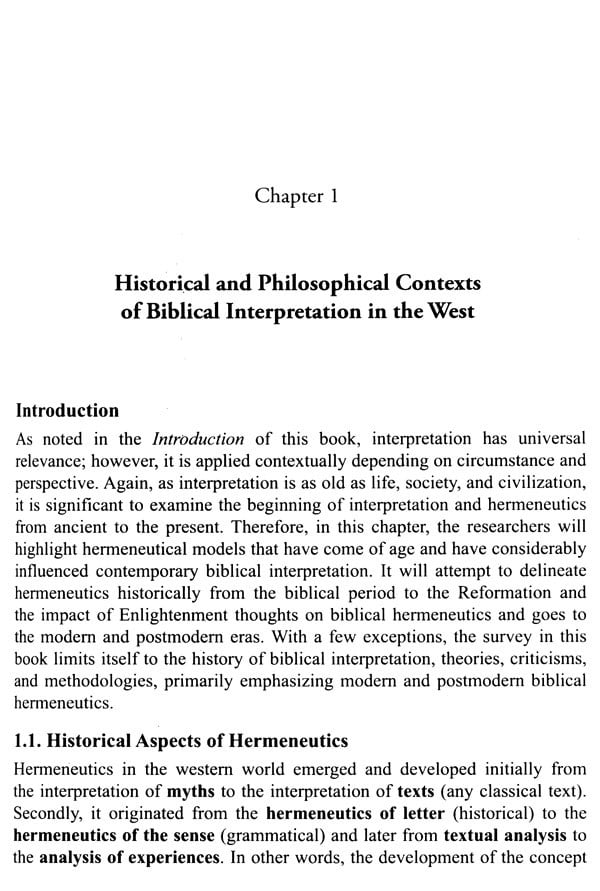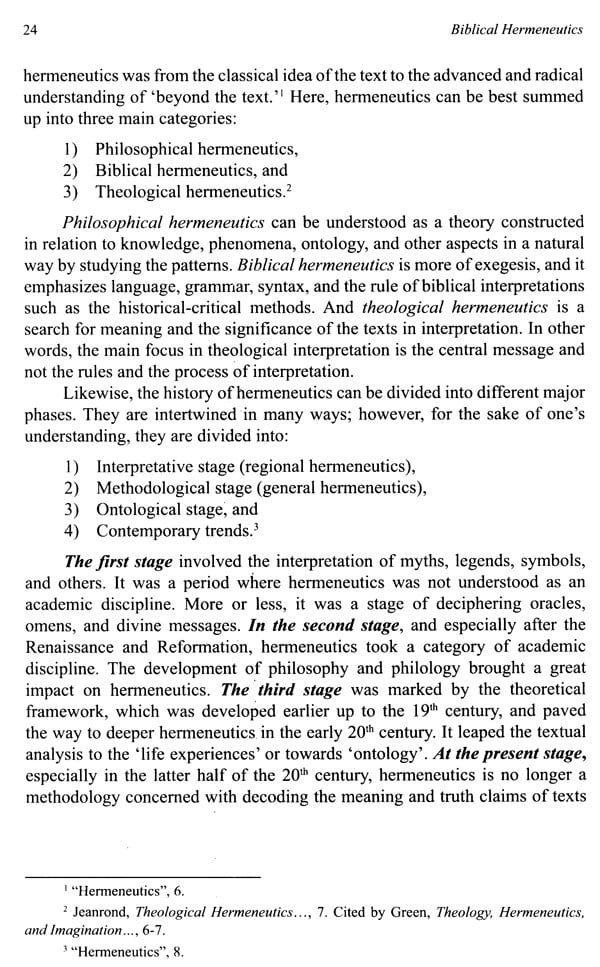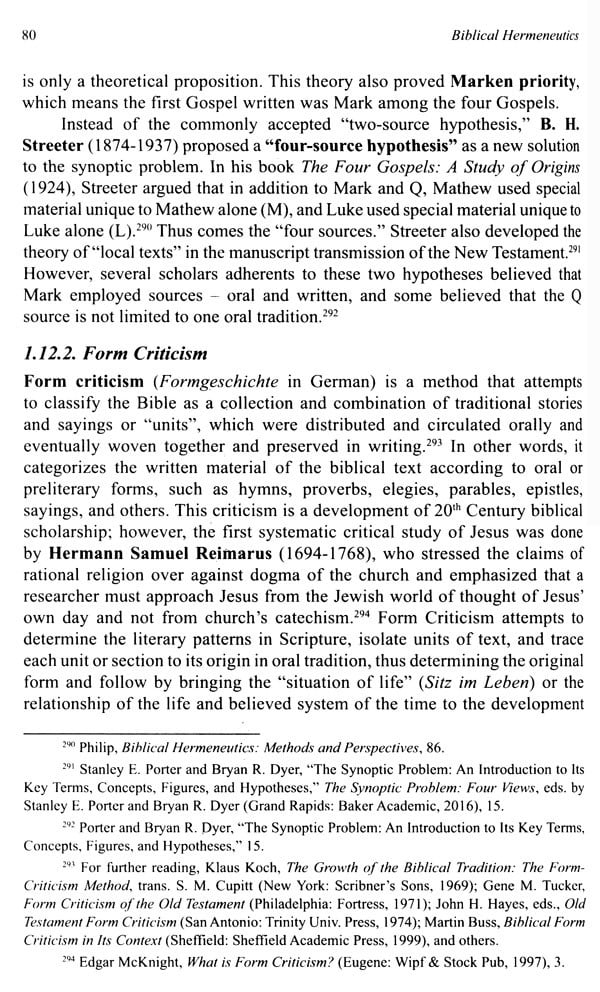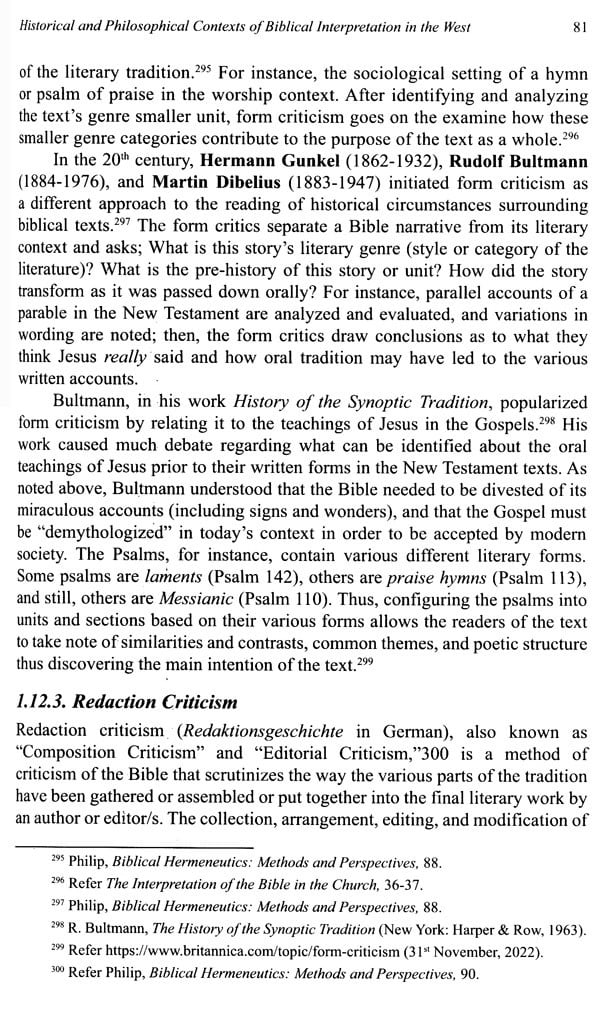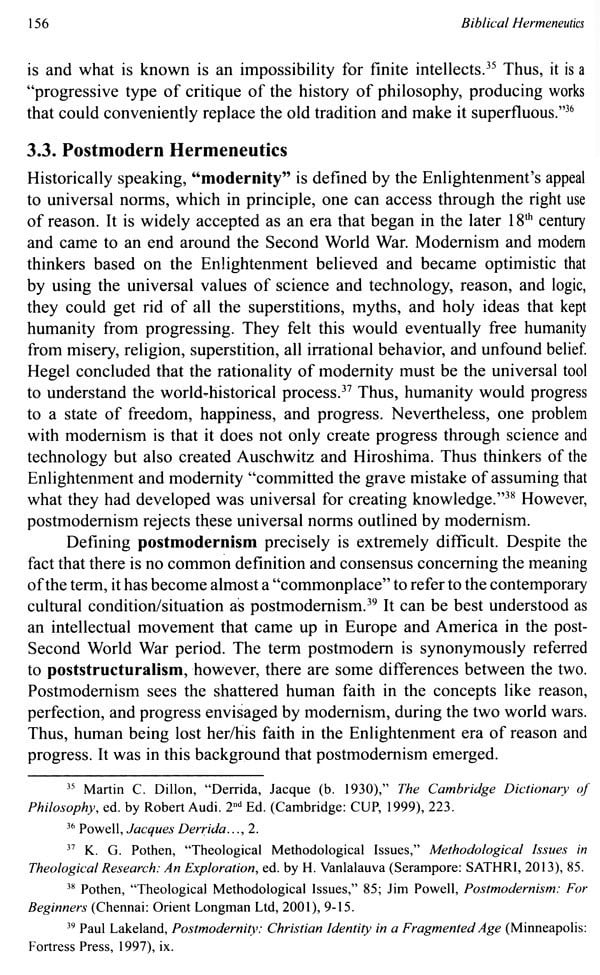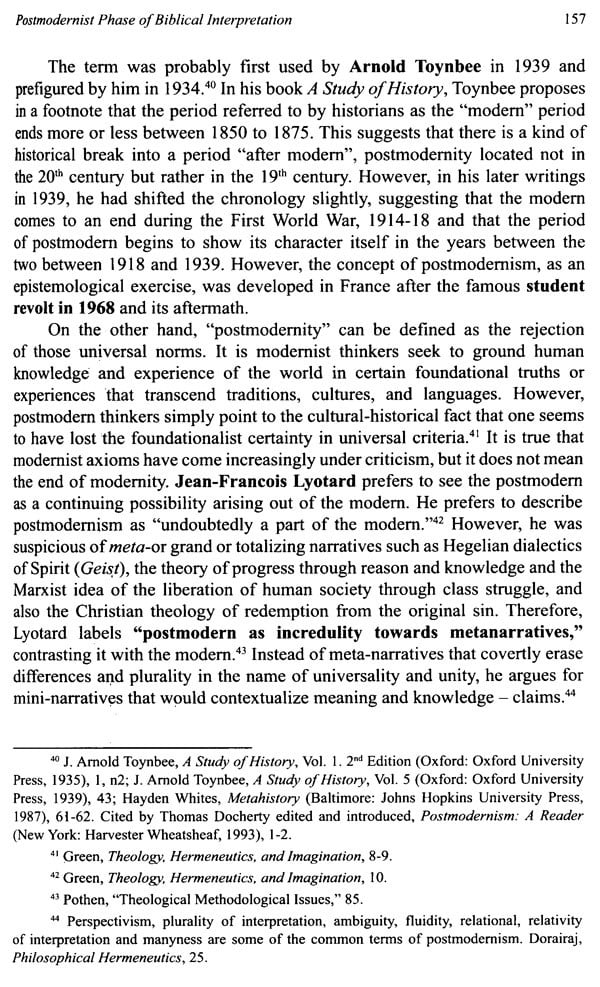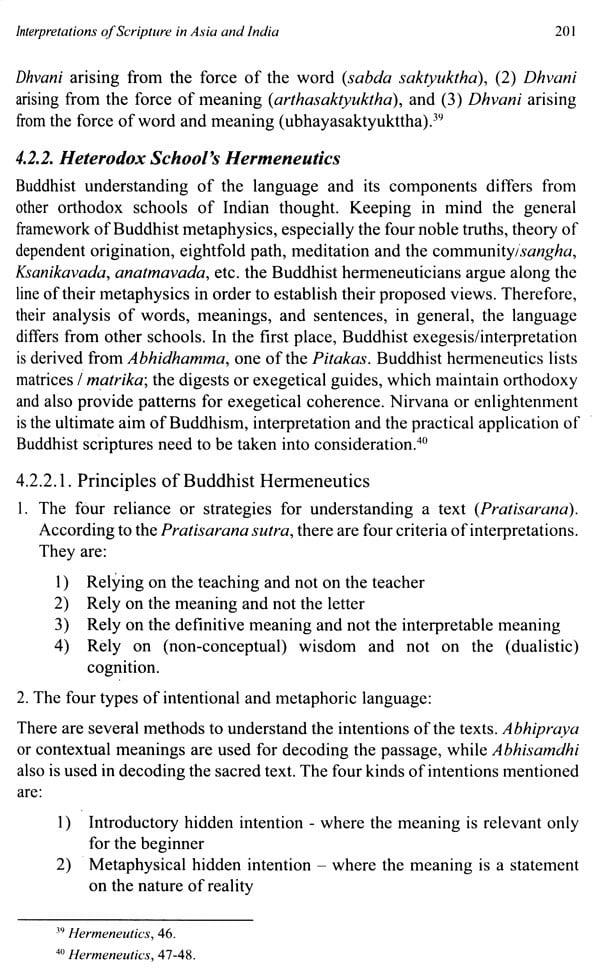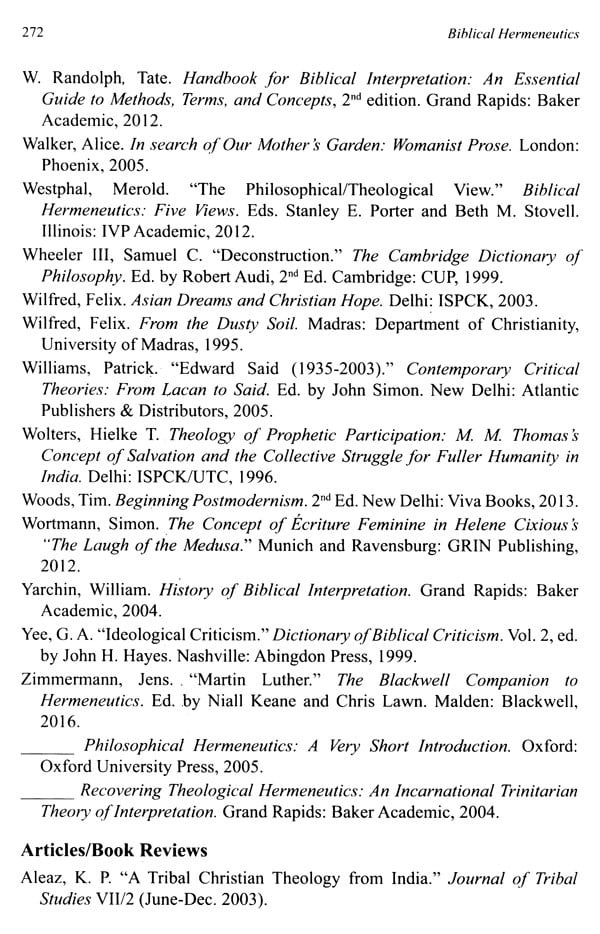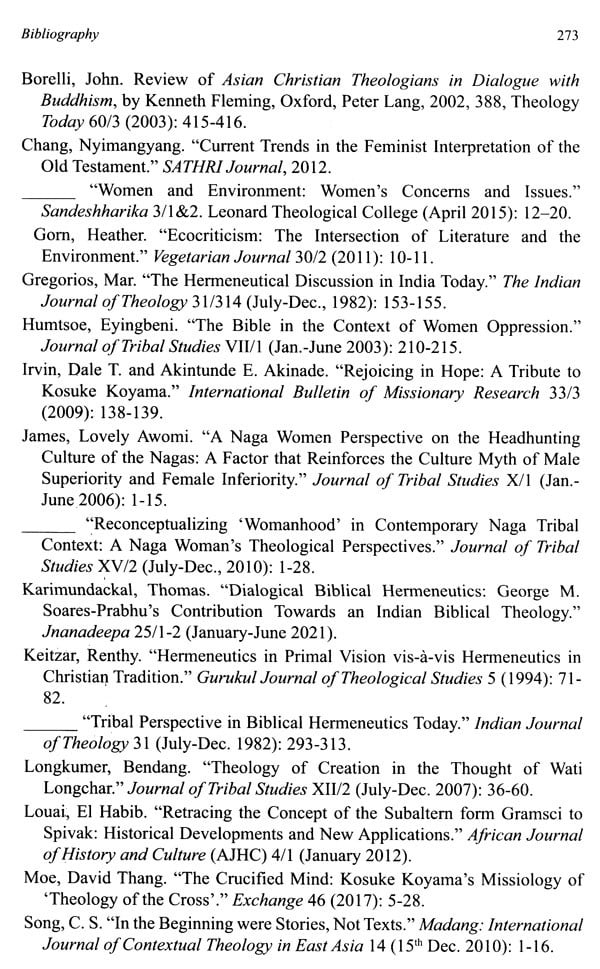About the Book Hermeneutics is one of the most interdisciplinary branches of knowledge. For any discipline: history, philosophy, theology, science, ecology, culture, politics, and others, one needs hermeneutics. Likewise, biblical hermeneutics can also be studied from different perspectives namely, Old Testament, New Testament, Biblical Theology, Doctrinal Study, and so on, making it multifaceted. Given this circumstance, the objective of this book is to make biblical hermeneutics reader and student-friendly from an interdisciplinary approach (philosophy, biblical, and theology). On the other hand, there are hundreds of well-written books on biblical hermeneutics; however, a large number of books are extremely abstract or philosophical and unsystematic for young readers; in a sense, they bring in different philosophers, hermeneutist, and other scholars without any introductory notes on those experts; thus, making the students confused and difficult to understand. This trait is explicitly shared by numerous theological students from various theological seminaries and colleges in India. Therefore, this book, Biblical Hermeneutics: Methodologies and Perspectives, is a humble attempt to make hermeneutics easy to read, reliable, comprehensive, contextualized, and provides vital information without losing its philosophical, biblical, and theological implications.
About the Author Dr. M. Maisuangdibou, MAS (English, Philosophy, and Theology) and D.Th. (Theology, 2020) from Senate of Serampore University, teaches Theology, Philosophy, and Ethics at Union Biblical Seminary, Pune. He also holds the office of the Dean for Postgraduate Studies. He has authored four books and numerous articles in national and international journals. He has been undertaking research on hermeneutics for 15 years and more and has authored two books on the subject: Tribal Theological Hermeneutics [ISPCK] and Tribal Literature, Theology and Methodology.
Dr. Hunibou Newmai, MA (Philosophy) and Ph.D. (Philosophy, 1992) from North Eastern Hill University, is the Education Director of Liangmai Naga Baptist Association, Manipur (LNBA-M), Namraining, Tamei, Manipur. He has authored three books, and he is an author, editor, and compiler of the Liangmai Text Book from Class I-XII. He is also a well-known public speaker, educationist, writer, poet, and expert in tribal philosophies, cultures, and religions. His latest book is a collection of poems Tingtheng Rapien: Chamsing.
Preface Hermeneutics is one of the most interdisciplinary subjects in the whole body of knowledge because no academic discipline can avoid it. All disciplines, to name a few, philosophy, biblical, theology, sociology, psychology, history, science, mathematics, political science, law, cultural studies, and others, depend on hermeneutics because, without a proper hermeneutical foundation, no systematic interpretation can take place. However, hermeneutics is not something that is given; rather, it is always developed in a specific time period for a specific purpose and in specific historical-cultural settings. Therefore, every hermeneutics is contextualized, and every hermeneutics is time-bound. What was created in the ancient time might not be necessarily relevant in the medieval context, and what was relevant during the Reformation might not be relevant in the modern time. this aspect proves that hermeneutics is dynamic, progressing, and keeps on updating according to new situations.
This short introduction to biblical hermeneutics has grown directly out of years of research on the subject from different perspectives; philosophical, literary, theological, and biblical as well. Rigorous research on the subject is done through teaching, and library works in different institutions in India, such as Eastern Theological College at Jorhat, North East Hill University at Shillong, Federated faculty for Research in Religion and Culture at Kottayam, Christ University at Bengaluru, Dharmaram College at Bengaluru, and others. Moreover, interaction with the different research scholars, theological students, and professors plays a huge role in understanding better the hermeneutical models analyze in this book.
At the same time, this book is a humble attempt by both authors' part to put together some of the biblical hermeneutics in a readable and concise manner so that students can benefit from it.
Introduction Interpretation is a universal phenomenon. Every human and society practice interpretation in one way or the other. This fact is because every being is a communicative and an interpretational being; therefore, interpretation is an integral part of life. In that sense, without interpretation, there cannot be meaning in life. Besides, interpretation is imperative in all ways of life because human beings are social beings and at the same time all human beings are inter-relational that demands interpretation in every step of life. Therefore it reminds everyone that there is no freedom from interpretation. One's act of communication, description, analysis, explanation, construction, translation, self-reflection, self-conversation, and the like involves interpretation in some form or other. Moreover, interpretation does not limit itself to some sort of bringing new and unknown stuff to be known for the first time. It is to interpret what has already been interpreted, and from diverse perspectives. This fact is because perspectives are never-ending notions, as there is always a new perspective for interpretation. Furthermore, any interpretation is bound to re- interpretation and it opens to diverse interpretations.
In the context of biblical hermeneutics, one of the basic questions asked by renowned Kevin J. Vanhoozer is, "Is there a meaning in this Text?" The "Text", here, he means the Bible. To rephrase this question from a wider perspective, one can also ask, "Is there a meaning in life?" The point is: Is there a meaning in anything? Does a text' have meaning? If there is a meaning how does one derive it? How does one interpret a text?
**Contents and Sample Pages**
